 Your new post is loading...
 Your new post is loading...

|
Scooped by
Gust MEES
January 13, 6:06 PM
|

|
Scooped by
Gust MEES
October 26, 2017 4:27 PM
|
Critical Thinking AND Proactive Thinking a MUST in Modern-EDU! WHY!? Looks to me as WE will live THE same as in 50's-60's with "James DEAN", Living on the edge Youth & Society", overload of information!? Change? At that time period it was TV, NOW it's the internet, similarities? Well, I think so!! A… Learn more / En savoir plus / Mehr erfahren: http://www.scoop.it/t/21st-century-learning-and-teaching/?&tag=Gust-MEES

|
Rescooped by
Gust MEES
from Learning & Technology News
November 10, 2016 10:12 AM
|
Teachers should embrace a radical pedagogy and provoke students to demand equality for themselves and others, argues vice principal Tait Coles Schools must develop a commitment to civic courage and social responsibility that ignites bravery in young people to realise they have the power and opportunity to challenge the status quo. School leaders have a duty to promote learning that encourage students to question rather than forcing teachers to lead drill-oriented, stimulus-and-response methodologies. Teachers must awaken the passions of their students and teach the knowledge and skills needed to direct and sustain it. Students need the freedom and encouragement to determine and discover who they are and to understand that the system shouldn't define them – but rather give them the skills, knowledge and beliefs to understand that they can set the agenda. Educators must be prepared to embrace a radical pedagogy and believe that each school should be one of freedom that provokes students to fight against the corridors of power and enforce equality for themselves and others. Critical pedagogy is the only way to achieve this. The philosophy was first described by Paulo Freire and has since been developed by the likes of Henry Giroux, Peter McLaren and Roger Simon. Critical pedagogy isn't a prescriptive set of practices – it's a continuous moral project that enables young people to develop a social awareness of freedom. This pedagogy connects classroom learning with the experiences, histories and resources that every student brings to their school. It allows students to understand that with knowledge comes power; the power that can enable young people to do something differently in their moment in time and take positive and constructive action. Learn more / En savoir plus / Mehr erfahren: http://www.scoop.it/t/21st-century-learning-and-teaching/?tag=Radical+Pedagogy
Via Nik Peachey

|
Scooped by
Gust MEES
June 21, 2016 11:55 AM
|
Social Media and Teaching
This is my online reflective diary on how social media – Twitter, Facebook, Linkedin, Google Plus, to name a few – is being used by teachers to build their PLN - Professional Learning Network and invest in their PD - Professional Development. What cannot be ignored is the institutional shift to and investment in web-based platforms to provide ongoing development for their teachers. Learn more / En savoir plus / Mehr erfahren: https://gustmees.wordpress.com/2016/06/01/update-twitter-chats-what-to-do-better/

|
Scooped by
Gust MEES
August 19, 2015 8:01 AM
|

|
Rescooped by
Gust MEES
from TCDSB Leadership Strategy
August 25, 2014 2:44 PM
|

|
Scooped by
Gust MEES
August 22, 2014 10:29 PM
|

|
Scooped by
Gust MEES
May 21, 2014 10:26 PM
|
In common parlance, a devil's advocate is someone who, given a certain argument, takes a position they do not necessarily agree with (or simply an alternative position from the accepted norm), for the sake of debate or to explore the thought further.

|
Scooped by
Gust MEES
March 17, 2014 10:47 AM
|
Ein deutscher Forscher erkennt an Veränderungen von Radio- und WLAN-Signalen, was ein Mensch tut.
===> Das schone die Privatsphäre mehr als jede Kameraüberwachung, sagt er. <===

|
Rescooped by
Gust MEES
from Learning in the 21st century
February 6, 2014 10:43 AM
|
Les travaux des chercheurs néerlandais et américains illustrent, avec éloquence, les exigences d’une société qui valorise la communication et l’échange d’informations via les nouvelles technologies, mais aussi et en même temps, une posture proactive, critique et créative dans la vie professionnelle. Nous sommes désormais bien loin de la société industrielle et c’est une réalité que nous ne saisissons malheureusement pas encore pleinement. D’où les retards et les résistances au changement...
Via Gilles Le Page, Laurent Blanquer, stephane canonne

|
Scooped by
Gust MEES
January 29, 2014 10:30 AM
|
Eco-friendly fashion designer and entrepreneur Maya Penn, founder of Maya's Ideas, talks creativity, life lessons, and charity work.

|
Scooped by
Gust MEES
January 21, 2014 7:59 PM
|
One of the greatest aspects of teaching students critical thinking skills is that, especially when compared to traditional classroom activities, critical thinking exercises can be a lot of fun.
|

|
Scooped by
Gust MEES
July 14, 2024 5:17 PM
|

|
Scooped by
Gust MEES
July 6, 2017 11:03 AM
|

|
Scooped by
Gust MEES
July 2, 2016 6:46 PM
|

|
Scooped by
Gust MEES
June 14, 2016 8:34 AM
|
I believe in the potential power of blogging. I believe it can be harnessed to be a powerful pedagogical tool in the 21st Century. 4 Benefits of Integrating Blogging into Pedagogy 1. Blogs promote participation and collaboration of knowledge and skills. There are a myriad of resources available on the internet that can help students become creators, and not merely consumers of different texts and bodies of knowledge. 2. Blogs promote global communication and collaboration. Teachers can facilitate interactions with diverse cultures, ethnicities, and religions, and social contexts. Students can be helped to challenging their thinking by considering other viewpoints. 3. Blogs promote the critical analysis of pedagogy and literacies. 4. Blogs create the potential for interactive spaces for authentic exchanges. Strategies including reading logs, book reviews, parental communication, encouraging reading and writing and responding around a particular theme or focus. If we can harness this power, we have a strong pedagogical tool on our hands. As with other areas in education, we can begin to harness this power by asking ourselves the right kinds of questions that can bring about the results we want to see. Learn more / En savoir plus / Mehr erfahren: https://gustmees.wordpress.com/2016/06/06/blogging-is-it-difficult-i-guess-not-a-all-follow-my-advice/ https://gustmees.wordpress.com/2013/03/25/practice/ https://gustmees.wordpress.com/2013/10/14/practice-using-blogs-for-home-work-to-get-ict-skills-and-creativity/

|
Scooped by
Gust MEES
August 12, 2015 9:27 PM
|

|
Scooped by
Gust MEES
October 28, 2014 12:32 PM
|

|
Scooped by
Gust MEES
August 25, 2014 11:25 AM
|
Proactive THINKing MUST be part Of EDUcation Responsibility While Using ICT

|
Scooped by
Gust MEES
July 7, 2014 12:13 PM
|

|
Scooped by
Gust MEES
March 27, 2014 8:34 PM
|
America is currently facing a crisis of leadership in business and in government. Yet at the same time – participation in leadership seminars and programs has never been higher. The leadership industry, with many of its roots in America, is now a $50 billion industry. If America is so good at [...]
Kellerman explains that the current state of leadership is no better understood or produced than it was 40 years ago and that followers are becoming more and more disenchanted by those who are leading them.
Though the leadership industry thrives, leadership in practice is declining in performance.
Learn more.

|
Scooped by
Gust MEES
March 6, 2014 9:19 AM
|
One of the most effective ways to provoke student thought is through the building of “rich” questions. By asking meaningful questions - and interacting with textual information – students can come to an understanding that builds upon on their own personal experiences and opinions. Through the use of a template, questions can be created in any way that you want and provide you with a specific platform to begin your questioning focus.

|
Scooped by
Gust MEES
February 1, 2014 1:11 PM
|
Every teacher I've worked with over the last five years recalls two kinds of digital experiences with students.
The first I think of as digital native moments, when a student uses a piece of technol

|
Scooped by
Gust MEES
January 26, 2014 10:25 AM
|
Traditional methods do not suit modern classrooms, expert says Professor Fullan identifies them as the root of the problem. But he stresses that the new methods of teaching he describes take teachers beyond being “mere facilitators” to becoming “partners” who recognise the “importance of proactively learning alongside students”. “Through such partnering, teachers not only become learners themselves, but also begin to see learning through the eyes of their students,” he writes. “This ‘visibility’ is essential if teachers are to continuously challenge students to reach for the next step.” The report acknowledges that many of the teaching strategies it describes have been “advocated for at least a century by the likes of Dewey, Piaget, Montessori and Vygotsky”. But it says that today’s conditions means they are now being widely embraced: “ Through the combination of the ‘push’ of traditional schooling that fails to keep students or teachers engaged, and the ‘pull’ of new pedagogies unleashed through digital access, the transformation of education systems on a broad scale becomes not only possible, but inevitable.”
|



 Your new post is loading...
Your new post is loading...



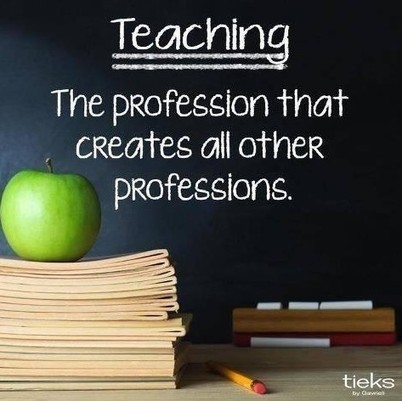



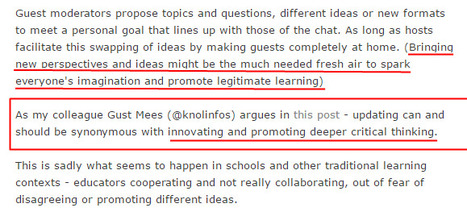




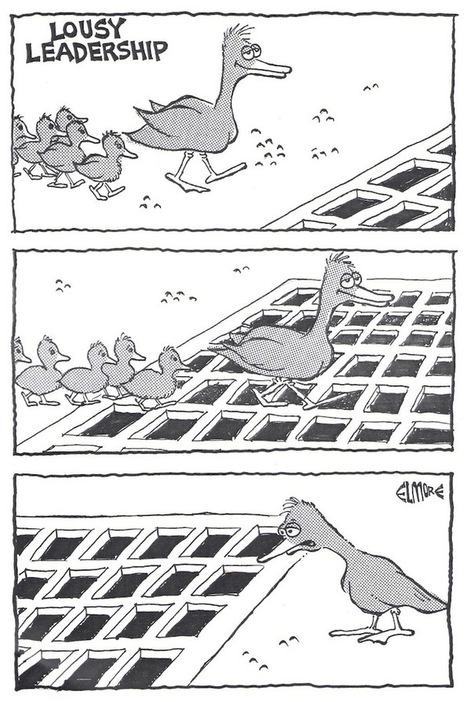



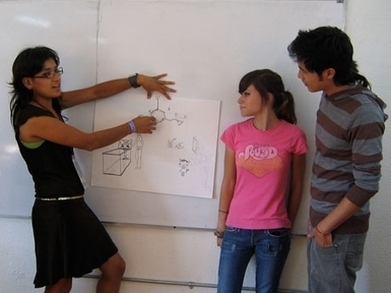

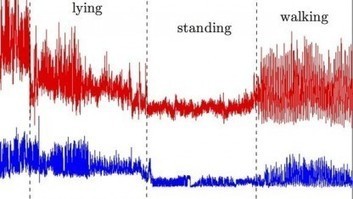
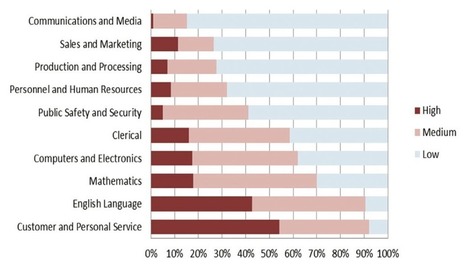





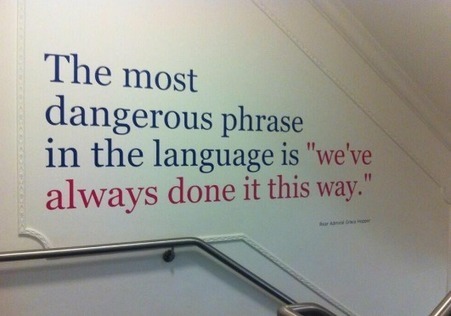



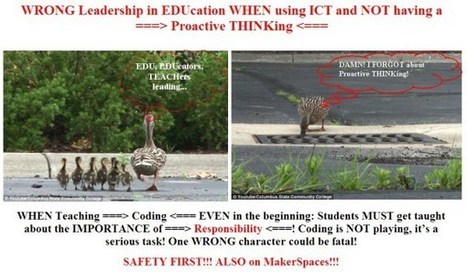
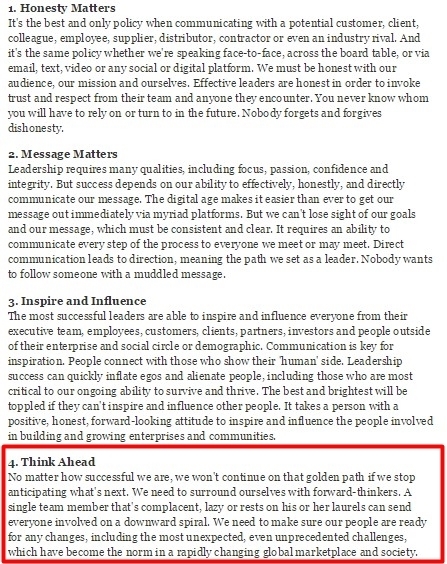
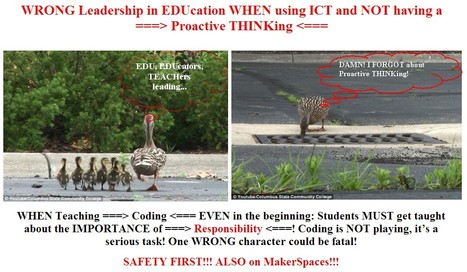


















Image created by ChatGPT: click image to enlarge, please. "Unlock the Power of AI for Free on Your Desktop! 🚀"Are you ready to supercharge your productivity, creativity, and problem-solving skills? Meet ChatGPT—the AI tool that’s changing how we work, learn, and innovate. Best of all, you can access it for free right from your Windows desktop! In…
Learn more / En savoir plus / Mehr erfahren:
https://www.scoop.it/topic/21st-century-learning-and-teaching?tag=Gust-MEES
https://www.scoop.it/topic/21st-century-learning-and-teaching?tag=ChatGPT